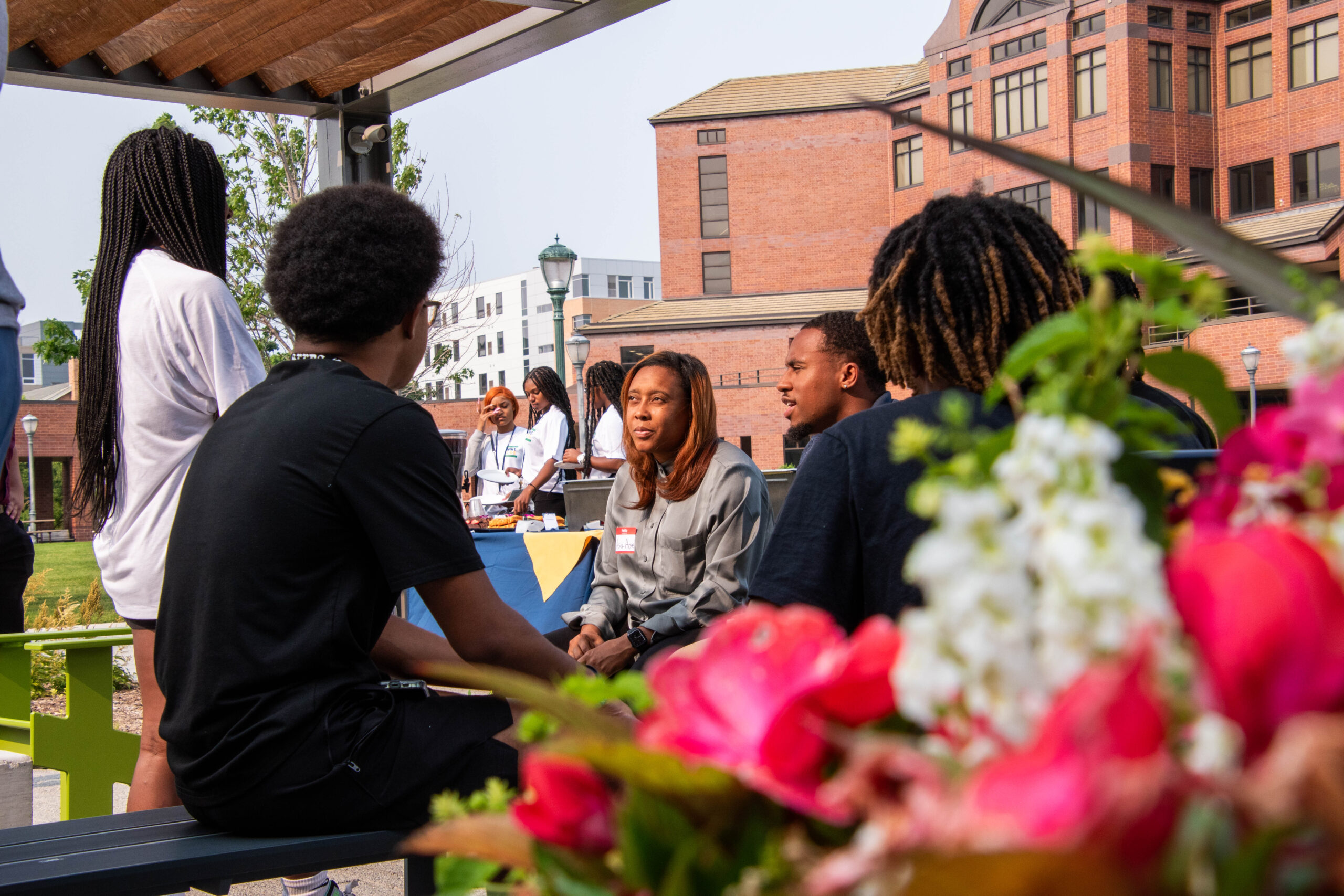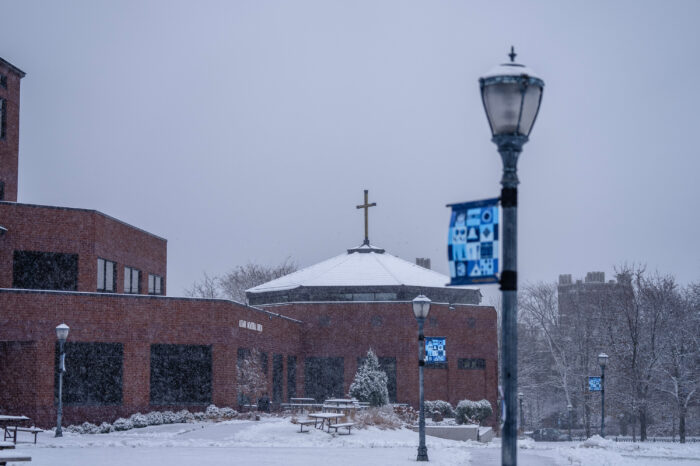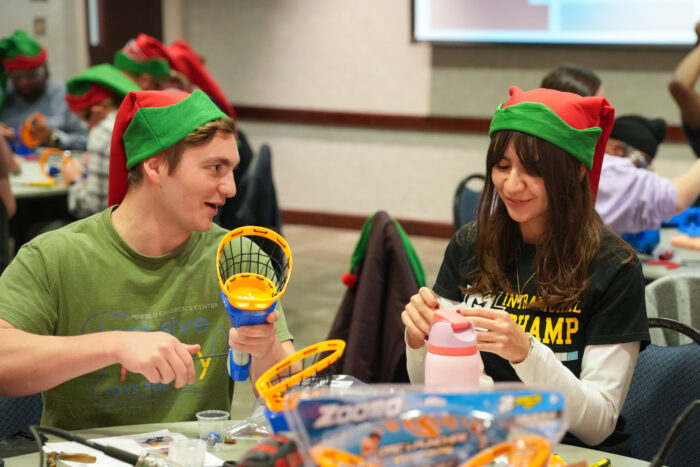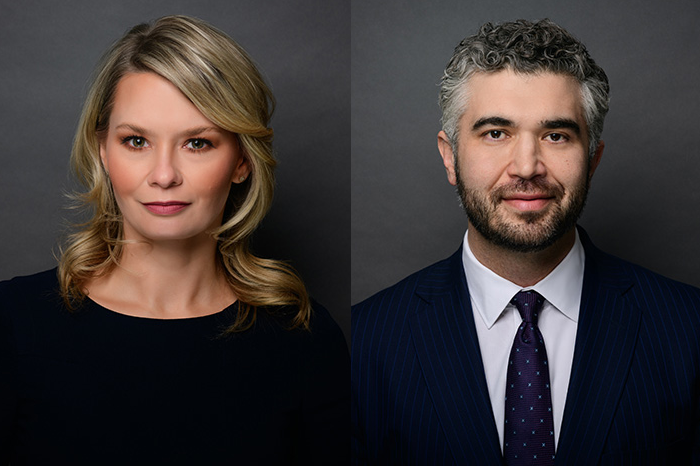More than a dozen high school students spent the last week of a fleeting Milwaukee July the way one might expect: making new friends, exploring the city and taking in a baseball game at Franklin Field.
However, they do plenty of other things that don’t align with a typical 16-year-old’s summer, such as touring commercial real estate projects under construction and listening to panel discussions by bankers and developers.
At the MKE CRE Summer High School Immersion Program, those two experiences exist side-by-side.
“One of the big things we want students to realize is that commercial real estate is more than just a job or a course of study; it’s literally everywhere around them, shaping their neighborhoods and their lives,” says Andy Hunt, Vieth Director for the Center for Real Estate.
The intensive summer program, which is now in its second year on campus and third overall after launching virtually in the summer of 2020, is a joint venture between Marquette’s Center for Real Estate and the Wisconsin chapter of NAIOP, a professional association that represents commercial real estate developers, owners and investors.
“We think it’s so important for future leaders to take an interest in real estate because they’re soon going to be the ones shaping our city in the future.”
Jen Manna, Associate General Counsel at Physicians Realty Trust
Both organizations recruit high school students from underrepresented backgrounds who are interested in real estate careers and provide them opportunities to learn from the industry’s top talent through lectures, one-on-one mentoring and site visits.
Students attend the camp free of charge, thanks to local sponsors.
NAIOP Wisconsin CEO Jim Villa hopes the immersion program will create a pipeline of diverse talent for the industry. People from underrepresented backgrounds who want to work in commercial real estate face structural barriers to entry, such as lack of access to affordable education and a professional network.
“At NAIOP, the diversification of real estate is incredibly important to us; not just in terms of real estate deals, but in terms of the people doing it,” Villa says. “The future of our communities depends on the people coming up in the industry who are going to make real estate development work for everybody. This program is a great chance to introduce the next generation of real estate leaders to different perspectives.”
Attendees spend a week on campus, staying overnight in residence halls under resident assistant supervision. Students will often start the day listening to guest speakers talk about the real estate construction process or how their investment firms select which properties to buy. After lunch, the cohort gets an in-person illustration of the morning’s lecture with guided tours of new high-rise apartment buildings or downtown retail locations. The day ends with dinner and group activities, such as a bowling night at the Union Sports Annex.
Jade Hendricks, assistant vice president of investor operations at MLG Capital in Brookfield, sees herself when she looks at the summer scholars. Hunt and Villa invited Hendricks to be a panelist in 2022 and she returned this year. Students often met with Hendricks after her talk to ask further questions, notebooks and pens at the ready, eagerly scribbling down the ensuing career advice.
“I’m always surprised by what the students ask because they’re just so in tune with what you’re saying,” Hendricks says. “I get questions like ‘did learning about real estate help you manage your money?’ and ‘how do you contribute to your company?’ It’s always interesting to think about what their world is currently like and how they can try to visualize themselves in my shoes.”
Physicians Realty Trust, a company that invests in medical office buildings, is the immersion program’s title sponsor. Their involvement goes beyond donations; the company also invited the students to tour their Third Ward offices. High-ranked members of the company, such as associate general counsel Jen Manna and senior investment analyst Patrick McCoshen spent the week with students, answering their questions and participating in activities while Mark Theine, executive vice president for asset and investment management, hosted a panel of young real estate professionals.
Companies that sponsor the program view it as more than just a charitable donation; they see it as an investment in their own industry’s future.
“We’re a Milwaukee-based company and we believe in this city,” Manna says. “We think it’s so important for future leaders to take an interest in real estate because they’re soon going to be the ones shaping our city in the future.”
While it will take a while for the high school-aged scholars to mature into interns and entry level job candidates, the program offers a more immediate benefit to companies who engage with it: information about neighborhoods around the city from the people who experience them every day.
“I like going to the classes and listening to what the kids want to see in the city,” says Ivan Gamboa, senior vice president at Oak Creek-based Tri-City National Bank. “We should always go in with a mindset of what the next generation wants to do.”
The immersion week concludes with students presenting their sole assignment for the week: a TikTok video demonstrating one thing they learned from their time at Marquette. After friends and family finish enjoying the students’ creativity and the last of the complimentary snacks are cleared away, Hunt and Villa address the room one final time, imploring the students to stay in touch. If these future titans of industry need advice, a reference or someone to make an introduction, that service is just an email away.
“You were with us for one week, but we’ll always be with you,” Hunt tells the crowd of students before they depart.
Even though the immersion program was only founded in 2020, there are signs that students have taken Hunt’s message to heart. Students from last year’s program came back for a reception to talk to this year’s group, providing the start to what Hunt hopes will be an extensive, active alumni network.
Some will go on to study commercial real estate in college, perhaps even at Marquette. Many will pursue a different path. However, all are now aware of possibilities they were not previously and have gone from thinking of real estate as an abstraction to viewing it as a foundational part of their lives and their communities.



